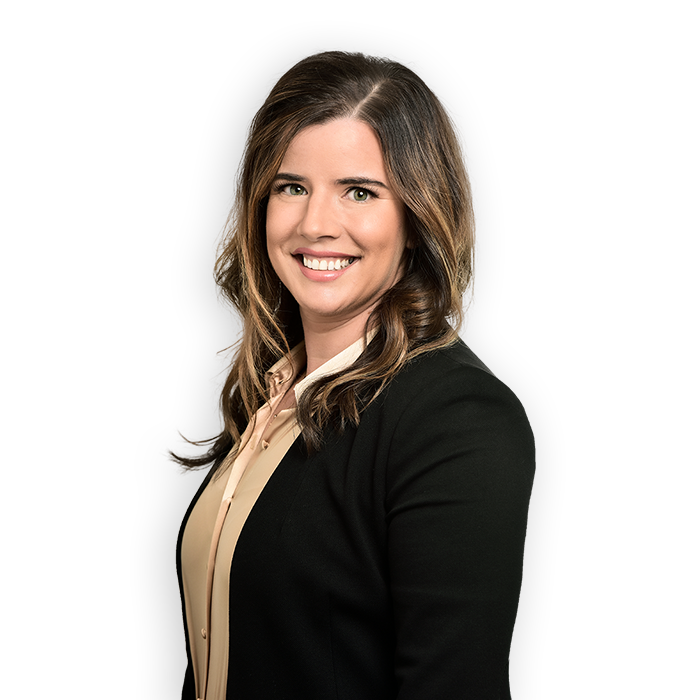Medicare and Behavioral Health: OPPS and PFS Rules Propose Changes to Improve Access

On July 13, the Centers for Medicare and Medicaid Services (CMS) announced proposed changes to both the Outpatient Prospective Payment System (OPPS) and Medicare Physician Fee Schedule (PFS). The full OPPS Proposed Rule is available here. The full PFS Proposed Rule is available here. Many of the changes proposed in the Proposed Rules could have a significant positive impact on behavioral health providers and are intended to promote access to behavioral health for Medicare beneficiaries. Both Proposed Rules have been published on the Federal Register and are available online in full.
Below, we discuss the proposed changes in more detail, however, among other changes, CMS has proposed establishing the Intensive Outpatient Program, which aims to provide Medicare beneficiaries with mental health services that require frequent but less intensive care than what is typically provided in hospitals or through a Partial Hospitalization Program. CMS has also proposed expanding the list of provider types who can enroll in Medicare to additional behavioral health providers, including marriage and family therapists and mental health counselors. Additionally, CMS has also proposed increasing payment for several behavioral health service types including crisis care, substance use disorder treatment, and psychotherapy.
As stated by Dr. Meena Seshamani, MD, PhD, Director for the Center for Medicare, and Dr. Douglas Jacobs, MD, MPH, Chief Transformation Officer for the Center for Medicare, the proposed changes “would help to make an essential contribution towards strengthening behavioral health care for people with Medicare, and taken as a whole, we are optimistic that we can make a profound and sustained difference in the behavioral health treatment of millions of Americans.”
The CMS OPPS and PFS Proposed Rules are both open for public comment until September 11.
OPPS Proposed Rule
Partial Hospitalization Program (PHP) and Intensive Outpatient Program (IOP) Services
PHPs are intensive, structured outpatient programs provided for individuals who have an acute mental illness or substance use disorder as an alternative to psychiatric hospitalization. IOPs are similar outpatient programs at a less intensive level than PHPs and that do not need to be used an alternative to psychiatric hospitalization. Since 2000, Medicare has paid for PHP services under the OPPS, when provided in a hospital outpatient department or a community mental health center (CMHC). CMS now proposes (as authorized by Section 4124 of the Consolidated Appropriations Act (CAA), 2023) to establish the IOP program, and begin paying for such services furnished by hospital outpatient departments, CMHCs, federally qualified health centers (FQHCs), or rural health clinics (RHCs). CMS has included a number of proposals related to both the new, proposed IOP program, as well as established PHP services.
IOP Coverage. As noted above, Section 4124(b) of CAA established Medicare coverage for IOP services effective for items and services furnished on or after January 1, 2024. CMS’s Proposed Rule includes proposals to establish payment and program requirements for IOP services to be furnished in a hospital to its outpatients, or by a CMHC, a FQHC, or a RHC. The rule also includes proposals related to the scope of benefits for IOP services, physician certification requirements, proposed coding and billing (for both IOP and PHP services), proposed payment methodology, and proposed payment for IOP in opioid treatment programs (OTPs). A detailed review of the proposed changes, including payment methodology, is beyond the scope of this alert, but a few key proposed changes include:
- Scope of Benefits: CMS proposes to define IOP services as “a distinct and organized intensive ambulatory treatment program that offers less than 24-hour daily care other than in an individual’s home or in an inpatient or residential setting and furnishes the services as described in § 410.44 [(proposed regulation detailing IOP services conditions and exclusions)]. Intensive outpatient services are not required to be provided in lieu of inpatient hospitalization.” The last sentence is included to differentiate between the definitions of PHP and IOP.
- Certification Requirements: Similar to PHP services, IOP services must be supported by a physician certification and plan of treatment. CMS proposes to codify the content of these requirements by largely mirroring the PHP content of certification and plan of care treatments, however, the IOP requirements would include documentation that the individual needs treatment for a minimum of 9 hours per week as opposed to 20 hours per week for PHP and with no requirement for the patient to need inpatient psychiatric care in the alternative. Recertification would have to occur no less frequently than every 60 days. CMS is soliciting comments on whether it would be appropriate to consider finalizing a shorter interval for the first recertification and for subsequent recertification for IOP patients.
- Opioid Treatment Program (OTP) Settings: Finally, CMS also proposes to establish payment under Medicare Part B for IOP services furnished by OTPs for treatment of opioid use disorder.
CMHC Conditions of Participation (CoPs). To account for the new proposed IOP benefit category, noted above, CMS proposes to modify the requirements for CMHC’s to include IOP services throughout the CMHC. And, to account for the new Medicare benefit category for mental health counselors and marriage and family therapist services, CMS proposes to modify the CoPs for personnel qualifications.
CMS is seeking comments on how IOP services may impact CMHC’s requirements of providing at least 40% of their services to individuals who are not eligible for Medicare Part B, among other expected effects of the addition of IOP.
PHP Rate Setting and SUD. In addition to proposals related to IOP, CMS’s Proposed Rules also include updates to payment rates for PHP services furnished in hospital outpatient departments and CMHCs. In addition, CMS proposes an additional physician certification requirement, that the patient requires PHP services for a minimum of 20 hours per week.
Remote mental health services
In the 2023 OPPS Final Rule, CMS finalized creation of three codes to describe remote mental health services furnished by hospital staff to beneficiaries at home. CMS is now proposing technical changes to create a new, untimed code describing group psychotherapy, and seeking comments on the descriptors of the remote group and individual psychotherapy codes to ensure they are clear. CMS is also proposing to remove the word “initial” in the code descriptors to facilitate accurate billing, regardless of whether the remote mental health service is being furnished as an initial or subsequent service.
Finally, to remain consistent with billing for remote professional mental health services and for RHCs/FQHCs furnishing remote mental health visits, CMS proposes to delay the requirement for periodic in-person visits for mental health services furnished remotely by hospital staff to beneficiaries at home through December 31, 2024.
PFS Proposed Rule
Services Addressing Health-Related Social Needs
CMS has proposed coding and payment changes to better capture the resources involved in furnishing patient care when taking into account a patient’s social determinants of health (SDOH, defined as “economic and social conditions that influence the health of people and communities”). Specifically, CMS has proposed adding separate coding and payment for the following three types of services:
- SDOH Risk Assessments: Assessments completed by a provider as part of a comprehensive social history during a patient visit to ascertain SDOH that may be impacting a provider’s ability to treat a patient.
- Community Health Integration: Services provided by providers such as community health workers, care navigators, or peer support specialists, to address unmet SDOH needs that affect the diagnosis and treatment of a patient’s medical concerns.
- Principal Illness Navigation: Services provided to help people with Medicare who are diagnosed with high-risk conditions (e.g., mental health conditions, substance use disorder, or cancer) identify and connect with appropriate clinical and support resources.
Behavioral Health Services
The PFS Proposed Rule also proposes expanding the types of behavioral health providers who can bill Medicare, the types of services behavioral health providers can bill for, as well as an increase to the valuation for the services provided.
Currently, only clinical psychologists or clinical social workers can enroll in Medicare and bill for Medicare services. However, Section 4121 of the CAA provides Medicare Part B coverage and payment under the PFS for the services of marriage and family therapists and mental health counselors. CMS thus proposes expanding the list of provider types who can enroll in Medicare and bill Medicare for services to these two additional behavioral health provider types.
CMS also proposes expanding the list of provider types who may bill for Health Behavior Assessment and Intervention services. These codes currently can only be billed by clinical psychologists; CMS’s Proposed Rule proposes expanding this to clinical social workers, marriage and family therapists, and mental health counselors as well.
Finally, CMS also proposes an increase in the valuation for timed behavioral health services under the PFS. The Proposed Rule states this adjustment was made upon a reevaluation by CMS of its processes for developing values for behavioral health services under the PFS “in light of increasing patient needs for behavioral health services and continued workforce shortages.”
Opioid Treatment Programs – Audio-Only Flexibilities
CMS proposes a continued extension to telehealth audio-only flexibilities granted to opioid treatment programs during the pandemic. In 2020, CMS published an Interim Final Rule which permitted OTPs to furnish substance use counseling and individual and group therapy via audio-only telephone calls when audio and video communication technology is not available to the beneficiary. Although the COVID-19 Public Health Emergency has now expired, in the Proposed Rule, CMS proposes extending this audio-only flexibility through the end of CY 2024 to promote continued beneficiary access to OTP services.
Professional
HLB will update providers once CMS issues the OPPS and PFS Final Rules. If you have questions about the OPPS or PFS Proposed Rules or their potential application to behavioral health coverage and/or payment, please contact Alicia Macklin in Los Angeles, Maydha B. Vinson in San Francisco, or any other member of our Hooper, Lundy & Bookman team.

